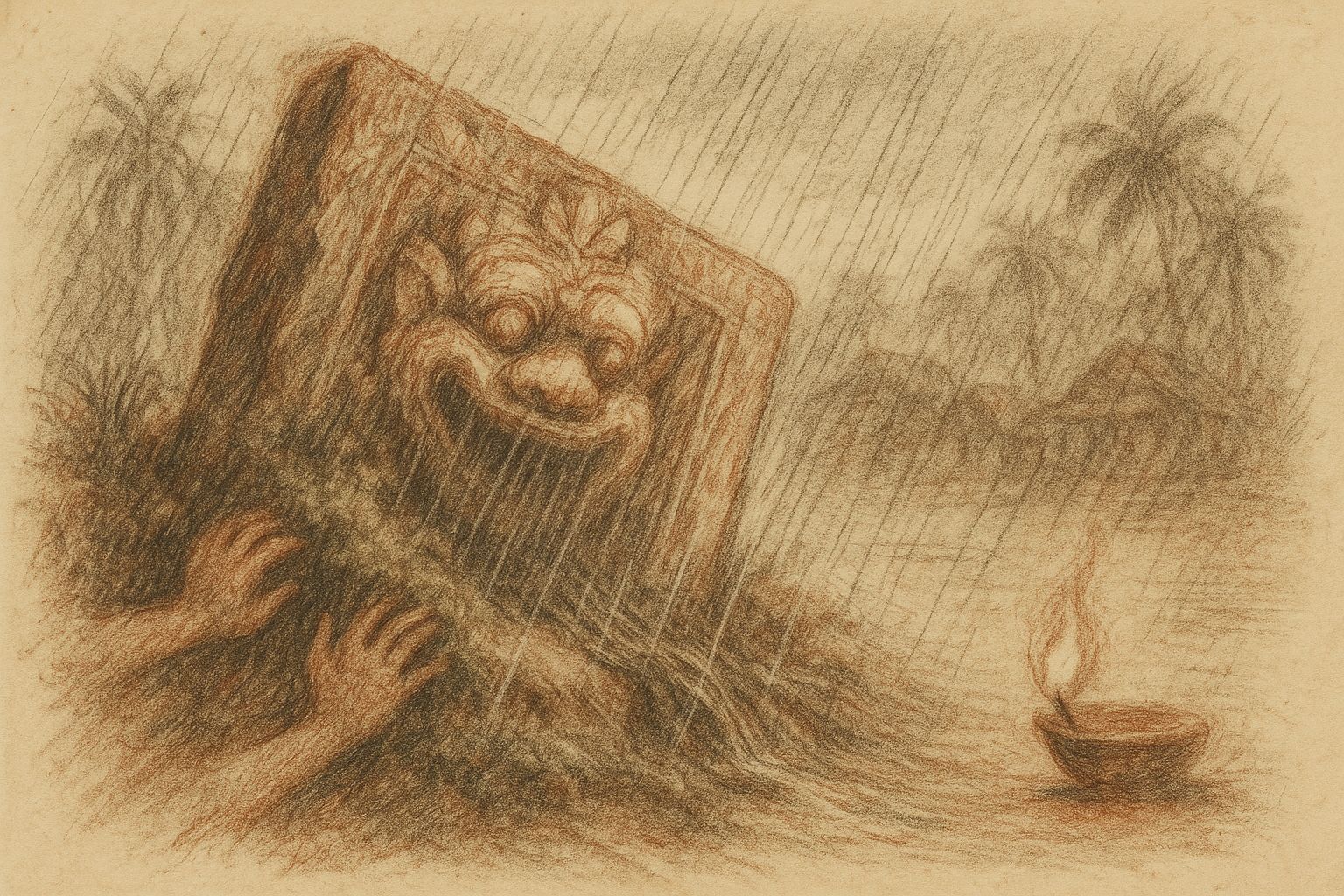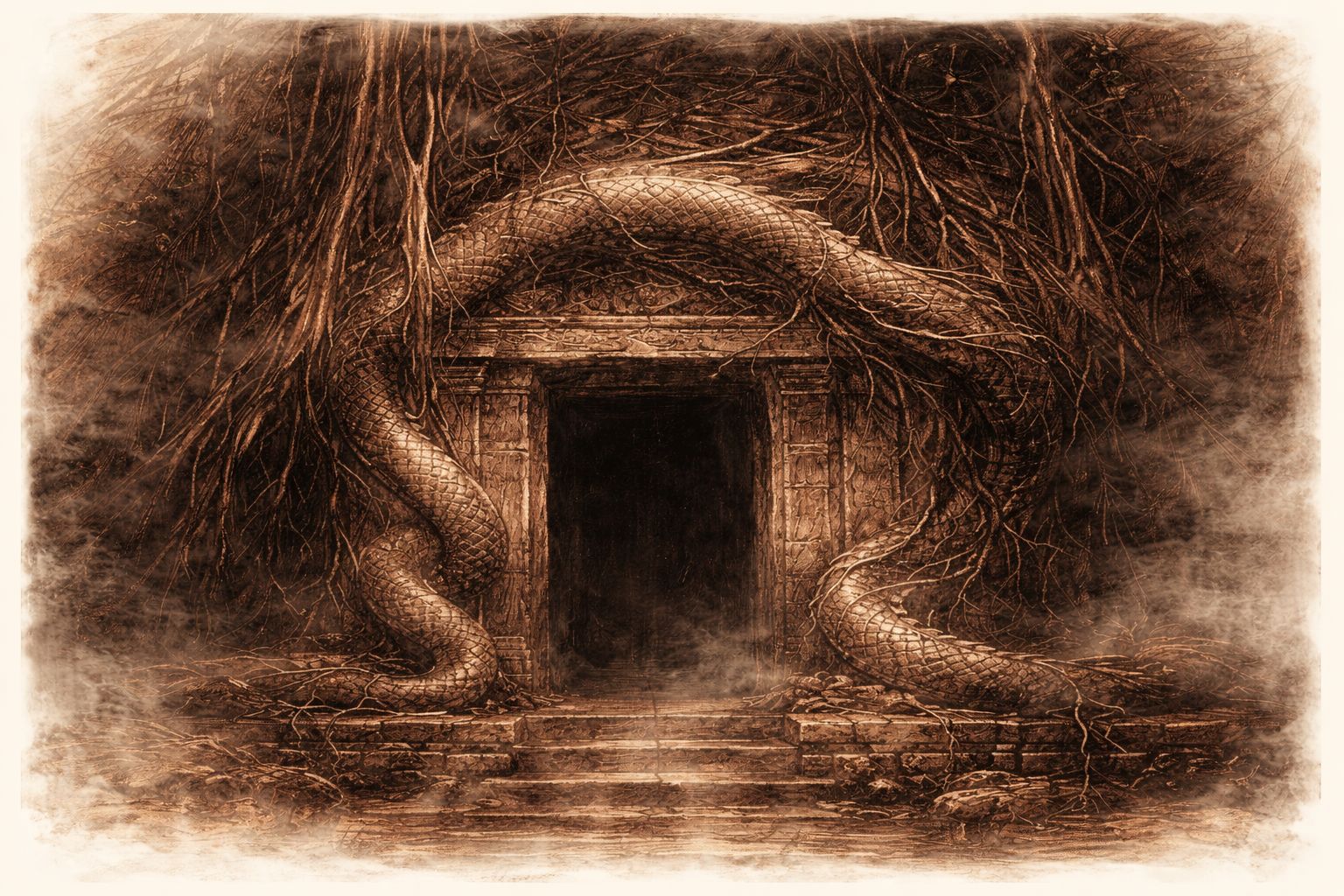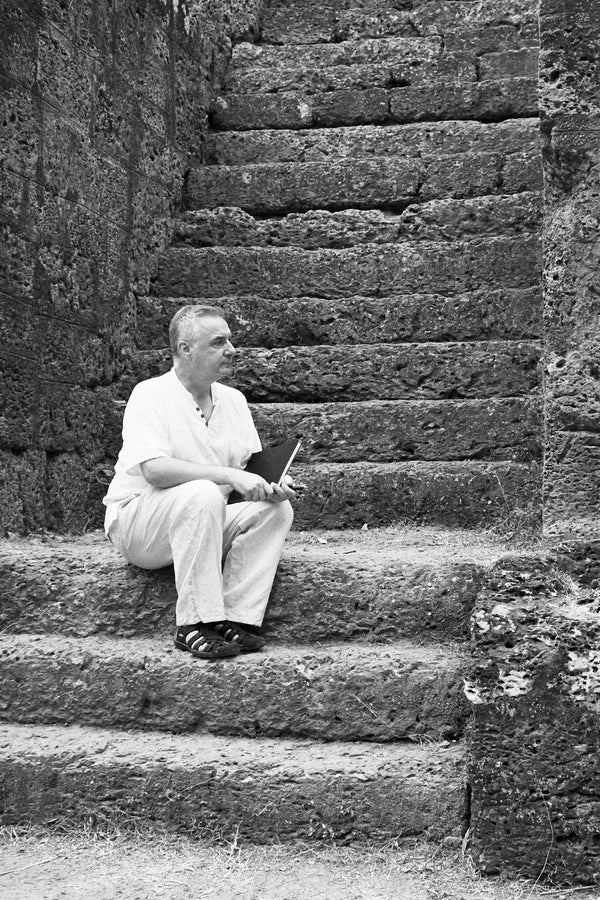Complimentary worldwide shipping on orders over $400 · No import tariffs for most countries
Complimentary worldwide shipping on orders over $400 · No import tariffs for most countries

The First Rain of the Monsoon
“Rain remembers where stone is named.”
The village had waited so long that thirst itself became inheritance. Generations measured time by the creak of empty jars, the dust that gathered in corners, the brittle leaves clinging from habit more than hope. Each morning, mothers pressed bowls to the well’s cracked lip, and each evening the bowls returned hollow. Yet the silence of rain was the loudest thing of all.
Then a child, playing at the far edge of the fields, stumbled over a moss-darkened stone. It was not the stone of a boundary or a house. Its surface bore lines too old for memory: the worn jaw of a kala, the faint curve of a lotus. Ivy had half-swallowed it, earth had almost claimed it, yet the shape still breathed beneath.
The elders came, stooping to brush away the soil. As their hands traced the lintel’s hidden carvings, a hush gathered, heavier than heat. No one spoke until the oldest woman said, “This was a door.” And in the saying, the village knew what had been waiting. Beneath the furrows of their own land, a shrine forgotten by their blood had kept vigil.
They cleared it with quiet reverence. Not with spades or blades, but with palm and cloth, carrying water from their own jars to wash the stone. They hummed as they worked, low tones without words at first, then the broken memory of a song—syllables like fragments of an ancestor’s breath. Someone lit a lamp; someone scattered rice. And the shrine, dark and patient, seemed to listen.
That night the air thickened. Frogs began their chorus. By dawn, the first rain of the monsoon swept across the fields, heavy and unhesitating, as if a vow had been remembered at last. The roofs thrummed, the earth drank, and the children ran bare-chested, letting the drops strike their open mouths.
The people did not claim it as miracle. They said only: we had forgotten, and now we remember. The rain was not a gift from elsewhere—it was the shrine breathing again, the song taking root, the stone returning to speech. Renewal had been waiting beneath their own steps all along.
And so each year, when clouds gather at the rim of the sky, the village returns to that lintel. They sing the songs whole now, voices plaited with the hiss of rain on stone. They leave bowls of water, not because the stone thirsts, but because they do. The shrine is less a place than a promise: that memory itself is rainfall, that hope descends most swiftly when we kneel, clean the moss, and listen.
Also in Library

Naga Vow
2 min read
A lost city sleeps in the jungle, its thresholds carved with serpents — not ornament, but law. This vow-poem enters love as sacred hunger: desire as guardianship, devotion as possession, the body speaking without language. A liturgy of heat, roots, rain, and the terrible tenderness of being claimed.

Awe Without Make-Believe
11 min read
A true spirituality does not demand answers. It demands integrity. In a world starving for depth, Woo sells comfort disguised as wisdom — replacing reverence with invention. But the sacred is not built from claims. It is built from attention, restraint, and the courage to say, with clean humility: we don’t know for sure.

The Meaning of Life Is a Vow
8 min read
Most lives do not collapse. They thin. They become functional, organised, reasonable—until the soul forgets what a life is for. Meaning is not granted. It is built: through illness, through love, through art, through grief—through the slow discipline of fidelity, and the choice of a centre that will not be betrayed.
Join My Studio Journal
Receive occasional letters from my studio in Siem Reap—offering a glimpse into my creative process, early access to new fine art prints, field notes from the temples of Angkor, exhibition announcements, and reflections on beauty, impermanence, and the spirit of place.
No noise. No clutter. Just quiet inspiration, delivered gently.
Subscribe and stay connected to the unfolding story.

Join My Studio Journal
Receive occasional letters from my studio in Siem Reap—offering a glimpse into my creative process, early access to new fine art prints, field notes from the temples of Angkor, exhibition announcements, and reflections on beauty, impermanence, and the spirit of place.
No noise. No clutter. Just quiet inspiration, delivered gently.
Subscribe and stay connected to the unfolding story.
